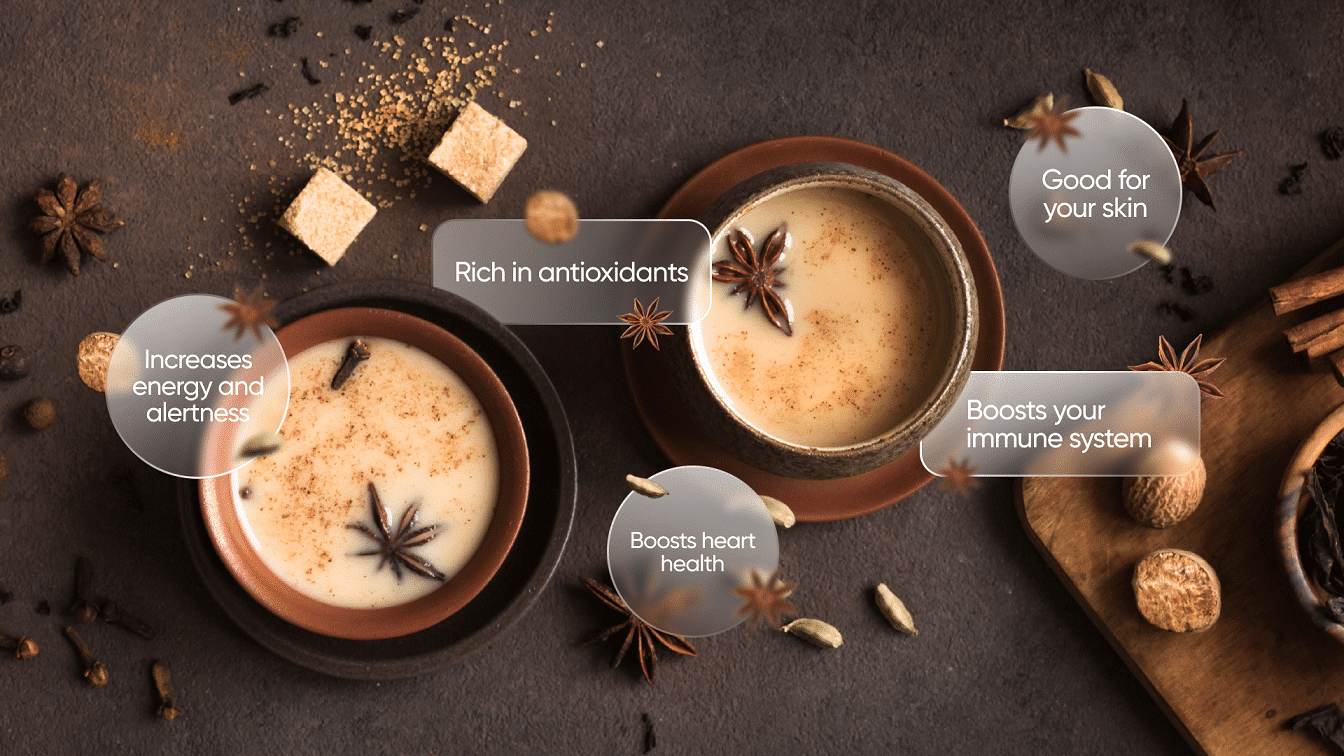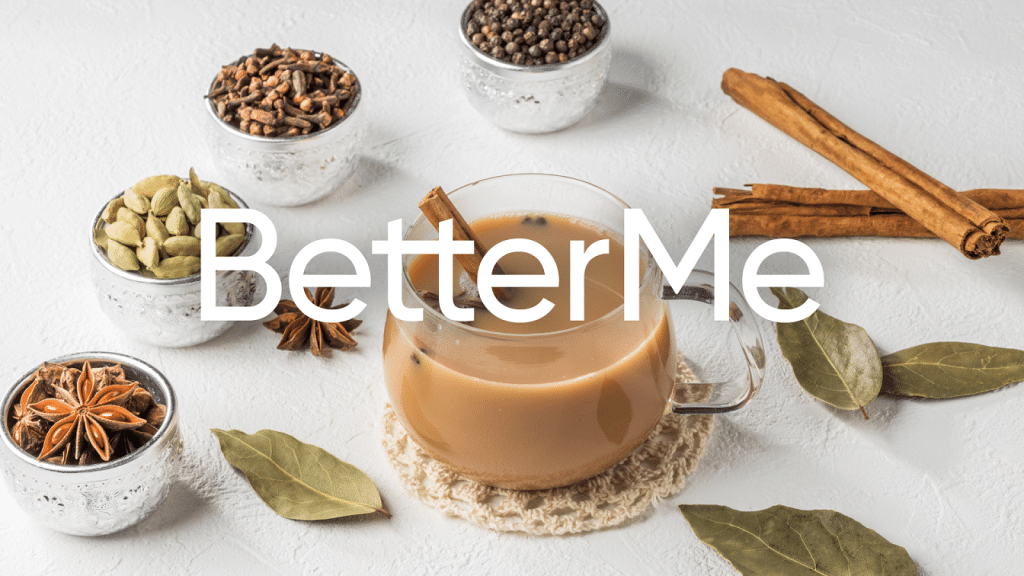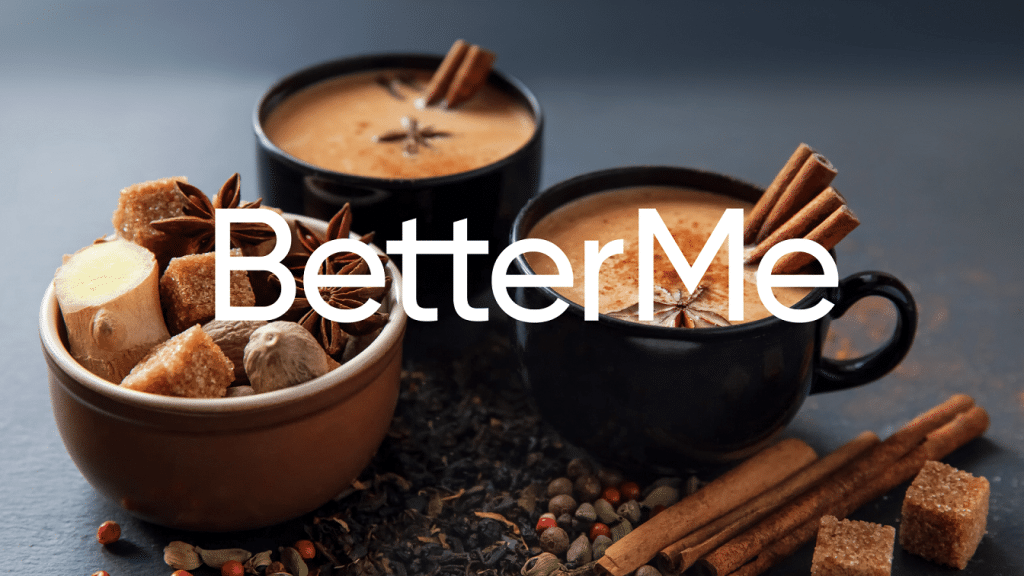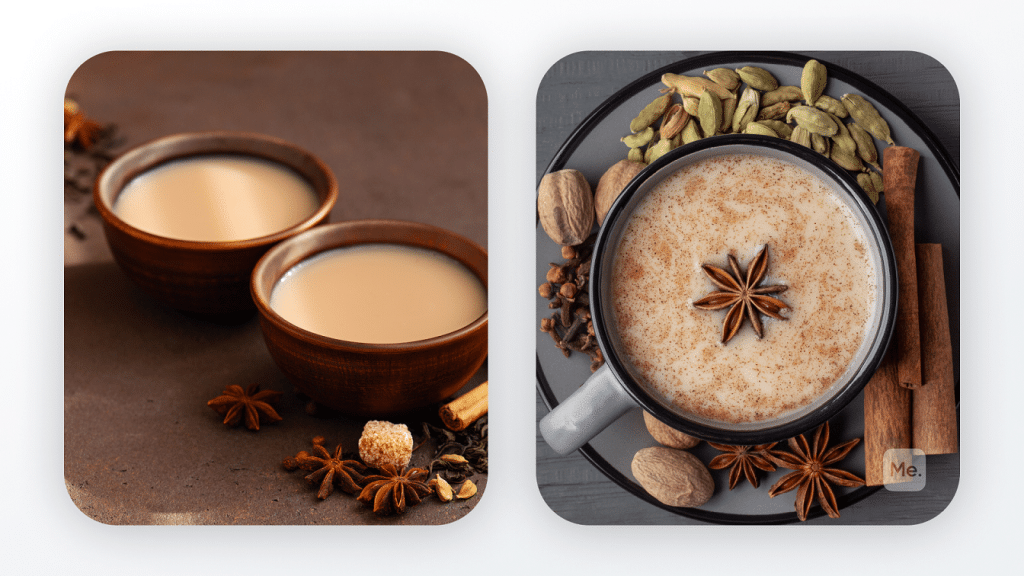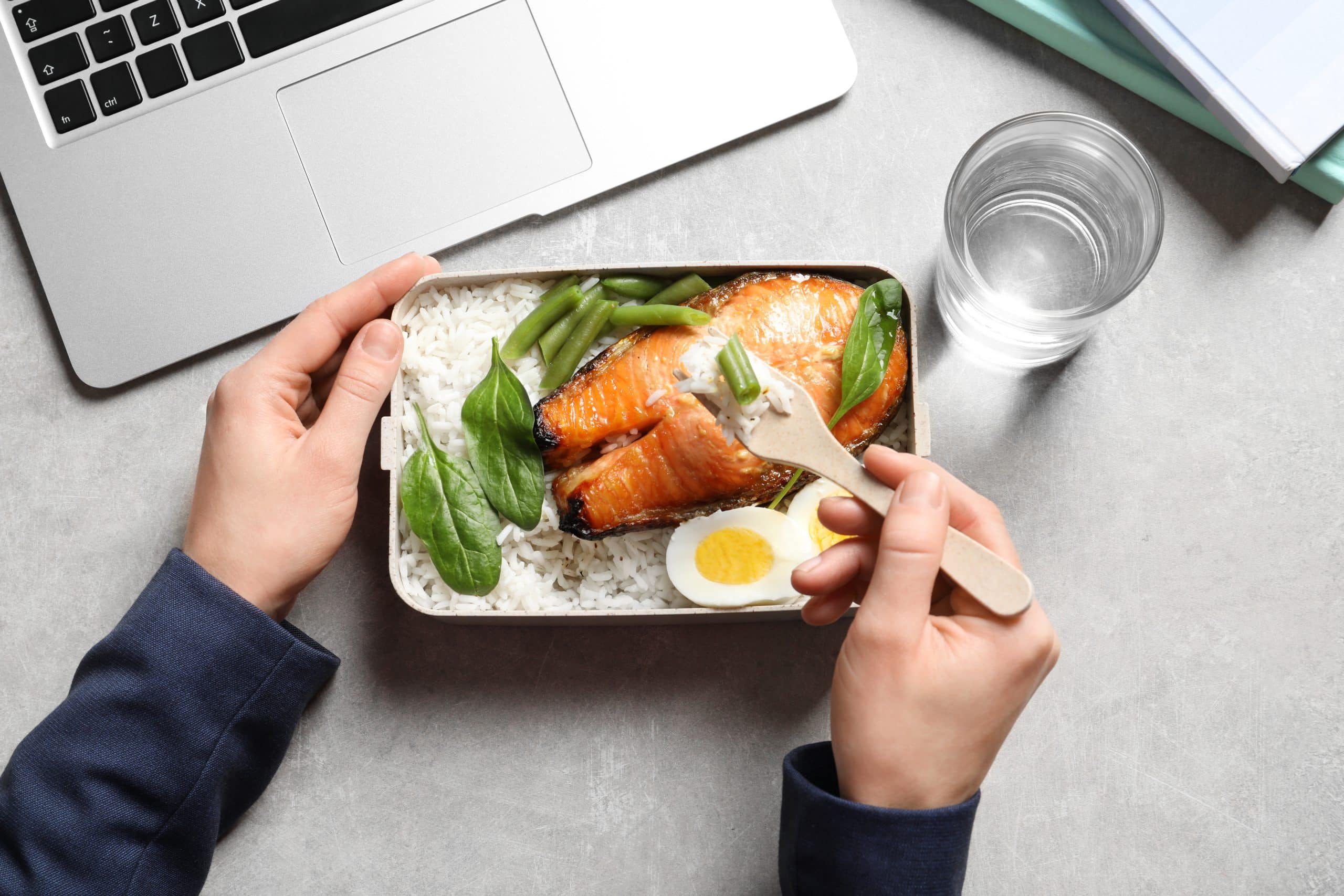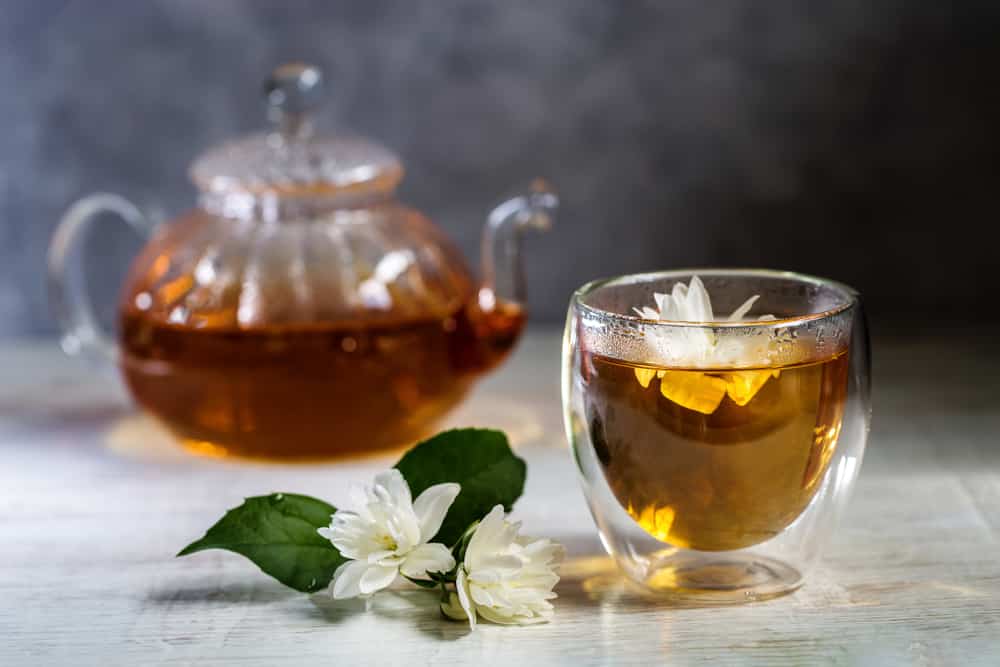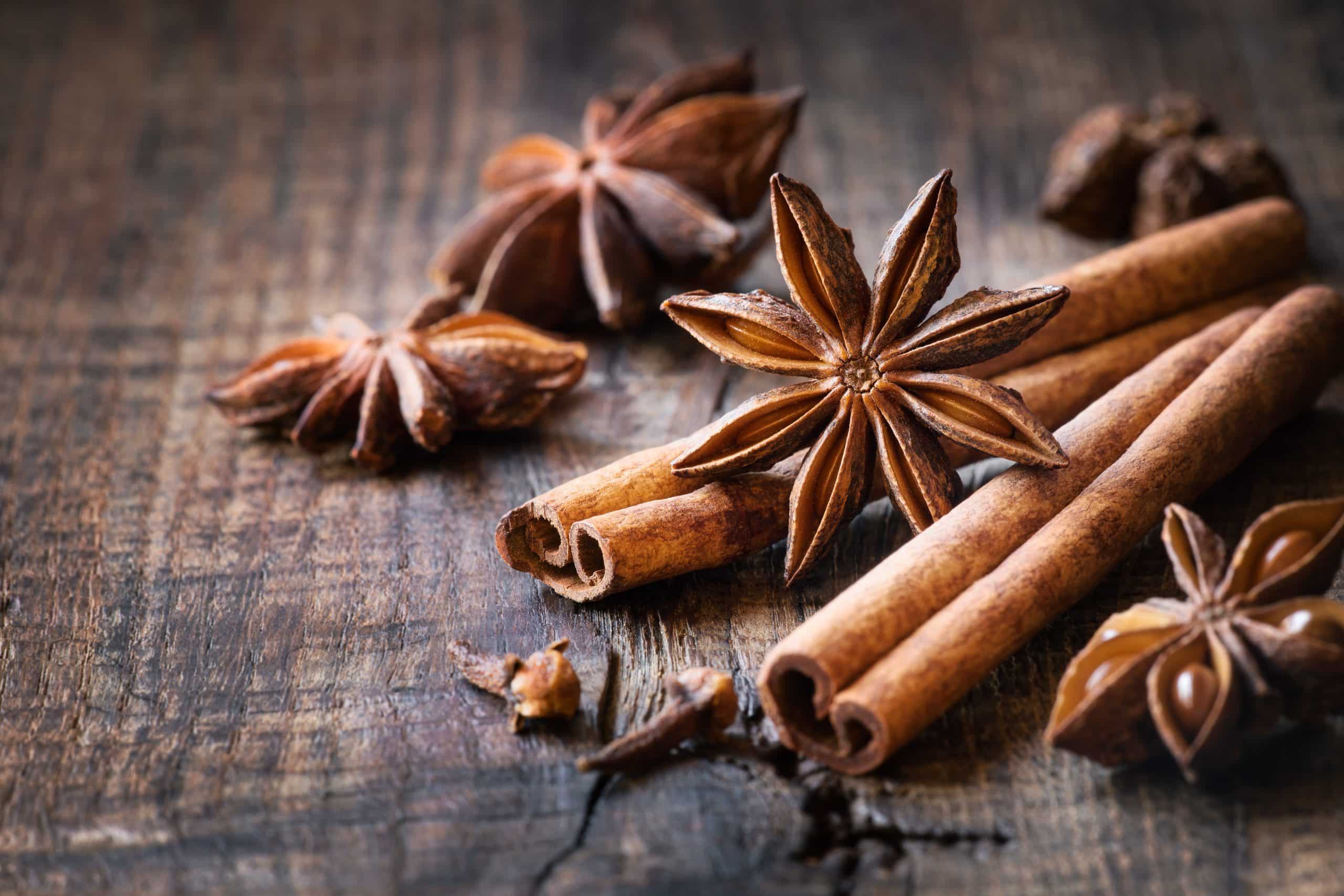Contrary to popular opinion, tea is the world’s most popular drink after water – not coffee. While some in the West may disagree, this brewed drink is very well loved and appreciated across the world in Europe, Africa and especially in Asia. Due to the popularity of this drink, there are many flavours and blends to choose from. One of the most popular types of tea is chai tea. In this article we shall be exploring the benefits of chai tea on your health, its nutrition facts, as well as any possible side effects.
Get your personalized
meal plan!
What Is Chai Tea?
Quick fact to note – Did you know that when you order chai tea you are just asking for ‘tea tea’? In Hindi and Swahili the word ‘chai’ literally translates to tea. This word can also be traced to China, as the Chinese word for tea is Chá.
Trivia aside, chai tea, also known as masala or spiced tea, is a milky brew made with a selection of different spices. This now beloved drink originated from India (as far back as 9,000 years ago where it was used as an Ayurvedic beverage) which has a long history of colonization, forced labour, and classism (30, 27).
Despite the rough and painful history, the brew managed to remain resilient and made its way from India, through South Asia, to Britain and now is enjoyed all over the world.
How To Make Chai Tea At Home
At a glance, the making of masala tea seems pretty easy. After all, it’s just some tea, milk, some spice or two, right? Wrong. Making a proper cup of spiced tea takes more than this. Here is how it should be done (30, 32).
-
The Base
While you can find different versions of fancy boxed chai tea bags at the store, black tea is the most commonly used base for chai. Not only was it the most easily accessible and cheapest option for the poor Indians during colonization times but it is also said to hold on to flavour more giving you a stronger cup of masala chai.
-
The Milk
You cannot make chai without milk. Traditionally, people often used either cow or buffalo milk. However, today the type of milk used all depends on preference. Vegans or people with lactose intolerance can use plant based options such as oat, pea, and hemp milk, while anyone tired of cow’s milk (or seeking to be adventurous in the kitchen) can use goat, sheep, or even camel milk.
Read More: Ginger Tea With Honey: Facts, Health Benefits And Side Effects
-
The Spices
In the West, the most commonly used spices for this drink are cardamom, ginger, and cinnamon. In the East, however, Indians often make their favourite cup of masala chai with a variety of spices like ginger, green or black cardamom, black pepper, clove, cinnamon, fennel, rose, mint, lemongrass, holy basil (tulsi), carom seeds, star anise, nutmeg, or saffron.
The spices can be used either fresh or dried – it all depends on family tradition and preference.
-
The Sweetener
Plain white sugar is the most common sweetener used for spiced tea across the world. You can also use cane sugar if you can find it or just some honey. Stevia and other zero calorie sweeteners can also come in handy.
-
The Boiling Process
Dumping the spices in a cup then adding milk and water and sticking the cup in a microwave will not work for this one. You will need to do everything in a pot and on the stove. The boiling method itself is also mostly dependent on preference. You can either:
- Dump in everything and boil it for a really long time
- First boil the spices and tea with water, then add milk before bringing everything to a boil once more
- Double boiling – Bringing everything to a boil, simmering for a bit, and then bringing to a boil for the second time
If your family has a history of making masala chai, using your beloved spiced tea recipe is the easiest way to go. If you are a beginner to all of this, we suggest experimenting with different spices, sweeteners, and boiling methods to find out what works for you.
For those craving some chai tea but could not be bothered to go through the entire brewing process, you could choose to just buy some from your local café or look for some authentic South Asian chai blends and concentrates for the best chai tea drinking experience.
BetterMe app will kick you out of the mental funk, shake off your extra weight, rid you off your energy-zapping habits, and help you sculpt the body of your dreams. Intrigued? Hurry up and change your life for the better!
What Are The Nutrition Facts Of Chai Tea?
Depending on where you look, some sources state that a cup of chai tea has about 60 calories while a cup of unsweetened chai tea has zero calories. We, however, state that none of these answers are correct.
As stated in the section above, masala chai is made with four main parts namely the water, spices, milk and a sweetener of choice. While the water and spices obviously have zero calories, the milk and sweetener do – and depending on the exact type each option used you can have more calories or less.
For example:
- Anyone who opts for whole milk will be consuming more calories than anyone who opts for plant based options. Even in terms of plant based milks, some have more calories than others with cashew, almond, macadamia, and hemp seed being the types of milk with the lowest calories.
- In terms of sweeteners, choosing zero calorie sweeteners like stevia, monk fruit or saccharin gives the sweet taste without the dreaded calories. On the other hand opting for cane sugar or normal white sugar adds 16 calories per teaspoon added to your drink (25, 6)
This, however, does not mean that chai tea nutrition facts are lacking. Chai tea benefits are usually packed in whichever spices are added during the brewing process.
What Are The Health Benefits Of Drinking Chai Tea?
As mentioned above, the health benefits of chai tea are usually hidden in the type of spices as well as the milk used to make each delicious cup. Here is how a having a single cup each day could improve your health
Can Reduce Bloating And Help With Indigestion
If you have constant issues with bloating and indigestion, then having some chai tea with or after your meals could mean a world of difference. Common masala tea spices such as ginger fennel and mint have been shown to help ease such problems.
- Ginger – According to a review in the Journal of Food Science & Nutrition, this simple, common spice can help relieve IBS (Irritable Bowel Syndrome) symptoms, decrease pressure on lower esophageal sphincter, reduce intestinal cramping, and prevent dyspepsia, flatulence, and bloating. It has also been shown to offer great relief to pregnant women who are prone to nausea and vomiting (16).
- Fennel – Two studies one published in 2009 and another in 2016 showed that this spice may help against bacteria that cause indigestion (1, 14).
- Mint – When it comes to chai tea benefits especially for gastrointestinal problems, mint is a herb to add to your spiced tea. According to two studies, one in the Digestive and Liver Disease journal and another in the Journal of Clinical Gastroenterology, taking peppermint oil capsules for 2 to 4 weeks helps to significantly improve the symptoms of IBS in patients (22, 23).
Other studies have also shown that peppermint oil not only helps food pass through the stomach faster -which can help counter indigestion – but it also when consumed, has similar effects on the body as many indigestion medications (31, 8).
Please note that while these studies on mint were done on the oil rather than fresh or dried leaves or powder, adding these variations to your chai tea probably wouldn’t hurt.
Read More: Rooibos Tea Facts, Health Benefits And Side Effects
May Help Lower Blood Pressure
According to the CDC in 2019 alone, over half a million deaths in the United States were due to high blood pressure aka Hypertension (13). But the US is not the only country afflicted by this disease. In 2013, a study published by the Journal of Hypertension revealed that a third of the cases and deaths in a Tanzanian hospital were related to hypertension (20). Today, the World Health Organization considers hypertension as a major cause of premature death worldwide (19).
When it comes to the health benefits of chai tea, lowering blood pressure and reducing your risk of cardiovascular illnesses caused by this condition is one of the advantages of this drink. According to a study published earlier this year in September by The American Journal of Clinical Nutrition, a diet high in herbs and spices can help improve blood pressure, especially in adults at elevated risk of cardiometabolic diseases (18).
Since masala chai is already spiced, it works towards reducing your risk of hypertension. However, to ensure that you are getting the most out of your spiced tea, be sure to add the following spices as you brew your drink:
- Cinnamon – A study published in 2013 revealed that in diabetic patients, taking cinnamon experienced a reduction in their systolic blood pressure (average reduction of 5.39 mm Hg) and diastolic blood pressure (average reduction of 2.6 mm Hg) (10). A meta-analysis of about 9 studies published in 2020 by the Critical Reviews in Food Science and Nutrition supported the same claims made by the 2013 study (2).
- Ginger – Ginger does more than just prevent bloating and nausea. A study review published in 2020 found evidence that this spice also fights against inflammation and metabolic syndrome, and improves digestive function and colorectal cancer’s markers (17). In 2017, a study done on over 4,000 participants showed that those who consumed the most ginger – about 2 to 4 grams a day – had the lowest risk of developing hypertension and coronary heart disease (CHD) (12).
- Cardamom – This is not only one of the most used spices in Indian cooking, but is also one of the most common flavors found in many chai tea blends in the West. According to the findings of a trial published in the Indian Journal of Biochemistry and Biophysics, consuming just 3 grams of this powder a day can significantly lower blood pressure levels to closer to normal ranges. The subjects in this trial had all been newly diagnosed with this condition and they consumed 3 grams of powdered spice (in divided doses) for 12 weeks (3).
Increased Energy Levels, Alertness, And Improved Memory
If you often feel yourself getting tired, lethargic, and forgetful throughout the day or even the afternoon, try some chai tea instead of that energy drink – chai tea has way less sugar than any energy drink out there. Chai tea benefits in relation to increased energy levels come from the following
- Caffeine – This is a stimulant and the most commonly consumed psychoactive substance in the world. When you consume some spiced chai, this stimulant jolts your central nervous system, quickly boosting your alertness and energy levels.
- Mint – Peppermint is often used in aromatherapy to help reduce fatigue and boosts alertness, memory, and energy (21, 29). If you were to add some fresh or dry leaves to your tea, the steam coming from the cup could act as your DIY version of aromatherapy.
- Cloves – Two studies done on mice – one published in 2009 and another in 2011, revealed that clove extract and oil can enhance the learning and memory recall ability in mice as well as reverse short-term and long-term memory deficit (26, 7).
Can Help With Pain Management
When it comes to ‘what are the benefits of chai tea spices’, pain management is probably the very last thing that anyone would ever consider. However, studies have shown that spices, including those often used to make masala chai can help with this issue.
- Ginger – This root has been shown to help improve circulation. Increased oxygen and blood flow helps reduce stiffness, relax the muscles and promote more flexibility and overall comfort for the aching area. If you workout a lot, some ginger masala tea could help with your muscle soreness.
One review done by The Journal of Strength and Conditioning Research, showed that consuming just 2 grams of ginger per day for 5 days may modestly reduce muscle pain from resistance exercise and running (15).
- Cloves – Its main active ingredient eugenol is a natural pain reliever. Clove oil has long been used as a homemade remedy for toothaches.
- Turmeric – A study published in 2014 found that turmeric extract works just as well as ibuprofen in pain caused by knee osteoarthritis (11).
Lean and toned up body isn’t just a far-fetched fantasy. Check out the BetterMe app and watch it propel your weight loss journey into high gear!
Rich In Antioxidants
All the spices often used in making spiced tea are filled with antioxidants which help fight against oxidative stress in the body. When out of balance, oxidative stress can cause irreparable damage to cells in our bodies which causes them to either malfunction or die.
Once this happens, your body is left vulnerable to many illnesses such as diabetes, high blood pressure, neurodegenerative diseases, such as Parkinson’s and Alzheimer’s, atherosclerosis, cancer, and heart disease, among many other conditions. These antioxidants also help to support your immune system (24).
Lowering Cholesterol Levels
Spices like ginger, black pepper, and cloves are believed to offer reduction in total cholesterol, triglycerides, LDL and VLDL cholesterol and even increase in the HDL ‘good’ cholesterol.
What Are The Side Effects Of Chai Tea?
If you are concerned about the side effects of drinking too much chai tea, the only significant issue that you could be concerned about is ingesting too much caffeine. While this stimulant can boost your energy levels, consuming too much of it can have some damning effects.
Too much caffeine can lead to nutrient deficiencies (tannins in tea can block the body from absorbing iron (28), increased anxiety, stress, and restlessness, insomnia and other sleep issues, heartburn (9), headaches (4), and caffeine dependence which can lead to withdrawal symptoms once you choose to reduce your intake (5). Pregnant and breastfeeding women need to limit their caffeine intake according to their doctor’s advice.
The Bottom Line: Is Chai Tea Good For You?
After a close look at chai benefits and side effects, it is easy to see that chai tea benefits outweigh the side effects by a mile. If you have been considering adding this drink to your diet, we say most people can feel comfortable to do so but just as with everything else, do it with moderation so you can avoid the above-mentioned side effects. However, if you are pregnant, we highly suggest first speaking to your doctor to see if this brew would be okay for you and your baby.
DISCLAIMER:
This article is intended for general informational purposes only and does not serve to address individual circumstances. It is not a substitute for professional advice or help and should not be relied on for making any kind of decision-making. Any action taken as a direct or indirect result of the information in this article is entirely at your own risk and is your sole responsibility.
BetterMe, its content staff, and its medical advisors accept no responsibility for inaccuracies, errors, misstatements, inconsistencies, or omissions and specifically disclaim any liability, loss or risk, personal, professional or otherwise, which may be incurred as a consequence, directly or indirectly, of the use and/or application of any content.
You should always seek the advice of your physician or other qualified health provider with any questions you may have regarding a medical condition or your specific situation. Never disregard professional medical advice or delay seeking it because of BetterMe content. If you suspect or think you may have a medical emergency, call your doctor.
SOURCES:
- Antibacterial and phytochemical screening of Anethum graveolens, Foeniculum vulgare and Trachyspermum ammi (2009, bmccomplementmedtherapies.biomedcentral.com)
- Anti-hypertensive effects of cinnamon supplementation in adults: A systematic review and dose-response Meta-analysis of randomized controlled trials (2020, pubmed.ncbi.nlm.nih.gov)
- Blood pressure lowering, fibrinolysis enhancing and antioxidant activities of cardamom (Elettaria cardamomum) (2009, pubmed.ncbi.nlm.nih.gov)
- Caffeine and headaches (2008, pubmed.ncbi.nlm.nih.gov)
- Caffeine Withdrawal (2021, ncbi.nlm.nih.gov)
- Cane Sugar (n.d., nutritionix.com)
- Clove oil reverses learning and memory deficits in scopolamine-treated mice (2011, pubmed.ncbi.nlm.nih.gov)
- Early effects of peppermint oil on gastric emptying: a crossover study using a continuous real-time 13C breath test (BreathID system) (2007, pubmed.ncbi.nlm.nih.gov)
- Effect of caffeine on lower esophageal sphincter pressure in Thai healthy volunteers (2006, pubmed.ncbi.nlm.nih.gov)
- Effect of short-term administration of cinnamon on blood pressure in patients with prediabetes and type 2 diabetes (2013, pubmed.ncbi.nlm.nih.gov)
- Efficacy and safety of Curcuma domestica extracts compared with ibuprofen in patients with knee osteoarthritis: a multicenter study (2014, ncbi.nlm.nih.gov)
- Evaluation of daily ginger consumption for the prevention of chronic diseases in adults: A cross-sectional study (2017, pubmed.ncbi.nlm.nih.gov)
- Facts About Hypertension (2021, .cdc.gov)
- Foeniculum vulgare: A comprehensive review of its traditional use, phytochemistry, pharmacology, and safety (2016, sciencedirect.com)
- Ginger (Zingiber officinale) as an Analgesic and Ergogenic Aid in Sport: A Systemic Review (2015, pubmed.ncbi.nlm.nih.gov)
- Ginger in gastrointestinal disorders: A systematic review of clinical trials (2019, ncbi.nlm.nih.gov)
- Ginger on Human Health: A Comprehensive Systematic Review of 109 Randomized Controlled Trials (2020, pubmed.ncbi.nlm.nih.gov)
- Herbs and spices at a relatively high culinary dosage improves 24-hour ambulatory blood pressure in adults at risk of cardiometabolic diseases: a randomized, crossover, controlled-feeding study (2021, academic.oup.com)
- Hypertension (2021, who.int)
- HYPERTENSION-RELATED DISEASES AS A COMMON CAUSE OF HOSPITAL MORTALITY IN TANZANIA: A 3-YEAR PROSPECTIVE STUDY (2014, ncbi.nlm.nih.gov)
- Modulation of cognitive performance and mood by aromas of peppermint and ylang-ylang (2008, pubmed.ncbi.nlm.nih.gov)
- Peppermint oil (Mintoil) in the treatment of irritable bowel syndrome: a prospective double blind placebo-controlled randomized trial (2007, pubmed.ncbi.nlm.nih.gov)
- Peppermint oil for the treatment of irritable bowel syndrome: a systematic review and meta-analysis (2014, pubmed.ncbi.nlm.nih.gov)
- Physiological role of antioxidants in the immune system (1993, pubmed.ncbi.nlm.nih.gov)
- Sugars, granulated (2019, fdc.nal.usda.gov)
- The effects of Syzygium aromaticum (clove) on learning and memory in mice (2009, researchgate.net)
- The History of Masala Chai (2020, thespruceeats.com)
- The Impact of Tannin Consumption on Iron Bioavailability and Status: A Narrative Review (2017, pubmed.ncbi.nlm.nih.gov)
- The influence of essential oils on human attention. I: alertness (2001, /pubmed.ncbi.nlm.nih.gov)
- There’s a Lot More to Masala Chai Than Spiced Milk Tea (2021, epicurious.com)
- Treatment of functional dyspepsia with a fixed peppermint oil and caraway oil combination preparation as compared to cisapride. A multicenter, reference-controlled double-blind equivalence study (1999, pubmed.ncbi.nlm.nih.gov)
- What Is Chai and How to Make It (2019, foodandwine.com)
